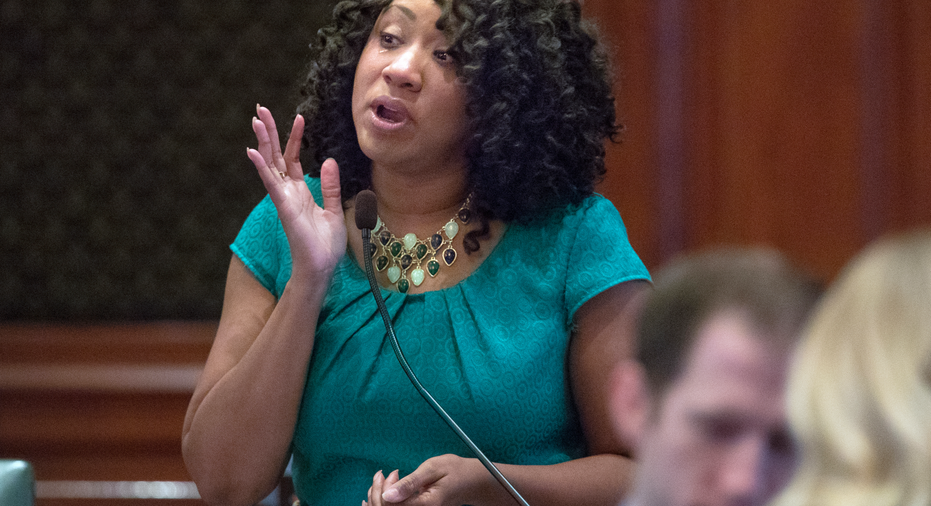Illinois facing dire consequences as budget feud continues

CHICAGO – Illinois will enter its third fiscal year without a state budget, territory that could mean some universities won't be able to offer federal financial aid, road construction and Powerball ticket sales will halt, and the state's credit rating will be downgraded to "junk."
Lawmakers met Friday to try to end an impasse between Republican Gov. Bruce Rauner and Democrats who control the Legislature that started when the first-term governor took office in 2015 promising change.
While a spending plan got early approval in the House on Friday, the chamber later adjourned for the day, with House Speaker Michael Madigan saying they would return Saturday — the start of the next fiscal year — to keep trying. Comptroller Susana Mendoza, who controls the state's checkbook, warned that without a budget: "Derailment is imminent."
Rauner has said he'll keep legislators at work in Springfield until they can reach an agreement, continuing a special session that is costing taxpayers up to $48,000 per day.
Here's a look at the situation:
HOW BAD IS IT?
No other state has come close to the mess that Illinois is in.
Some states have gone months without a budget — Pennsylvania had a nine-month impasse that ended last year. But Illinois' stalemate has been unprecedented since it reached a full year.
Illinois already has the lowest credit rating of any U.S. state, and it owes more than $15 billion in late payments to vendors — including doctors who provide health care to state employees and social service agencies that care for disabled people.
Some homeless and domestic violence shelters have been forced to close or reduce services, and some medical offices are no longer seeing patients on state insurance unless they pay cash up front. Universities have laid off thousands of employees.
Illinois also owes school districts millions of dollars for transportation, special education and other expenses.
___
WHAT ARE THE CONSEQUENCES?
S&P Global Ratings said earlier this month it would likely downgrade Illinois' credit rating to below investment grade if lawmakers didn't approve a budget by Saturday. The agency didn't say when it would act, other than that it would be "around" July 1.
A downgrade would make Illinois the first U.S. state to be assigned "junk" status, and increase the cost to taxpayers when the state borrows money.
The Illinois Department of Transportation has said nearly 700 roadwork projects would stop, putting an estimated 25,000 people out of work, because the state can't spend money collected through the gas tax without the Legislature approving an appropriation.
The Higher Learning Commission, which accredits schools in the Midwest, has warned the ongoing lack of funding could cause some universities to lose their accreditation. Southern Illinois University President Randy Dunn said that would mean the colleges wouldn't be able to offer federal loans and grants to students, causing more to choose colleges in other states.
"We're going into very dangerous territory," Dunn said.
___
HOW DID IT HAPPEN?
Rauner, a former private equity investor, won election in 2014 on an anti-tax, pro-business agenda. He promised to shake things up, once even suggesting it might require a government shutdown.
As he was inaugurated, a temporary, four-year Democratic income tax increase that had provided up to $7 billion extra a year was allowed to expire, and the tax rate rolled back. Revenues fell far short of spending and red ink piled up.
Rauner has demanded cost-cutting changes to workers' compensation laws, which he says are needed to lure businesses to Illinois. He also wants a freeze on local property taxes, which are among the highest in the nation.
Democrats, who have large majorities in the Legislature, argue that Rauner's demands are an attack on the middle class. They say a property tax freeze would hurt school districts, which rely heavily on property tax.
___
HOW HAS ILLINOIS GOTTEN AWAY WITH IT?
In nearly two dozen states, failure to pass a budget leads to a government shutdown. Other states have consequences to deter late spending plans. In California, for example, lawmakers don't get paychecks if they don't send the governor a spending plan by June 15.
Illinois has no such laws. Instead, the state has been spending billions of dollars annually because of laws and court orders that require some items continue to be paid. Lawmakers also have passed various "stop-gap" appropriations bills to fund some areas, such as K-12 education.
People who rely on government for assistance have felt the pain. But for others, the impasse so far has barely been noticeable: Roughly 63,000 state workers are still getting paychecks, schools have remained open and some road construction projects have continued.
But the days of being able to get by are coming to an end.
___
WHERE DOES THE DEFICIT STAND NOW?
Because lawmakers never passed a budget accounting for the rollback of the income tax increase, Illinois is still spending more money than it has coming in.
And as more groups go to court to get paid, and judges order more spending, the deficit has grown. Illinois' deficit for the current fiscal year is an estimated $6 billion.
Mendoza, the state comptroller, warned this week that without a budget, the state by August will have $185 million more in state-mandated and court-ordered payments than it will have revenue to pay them.
She said that would make "the unthinkable" — such as delaying pension payments or not paying state workers — very likely.
"Illinoisans must brace for maximum impact," she said.
___
Follow Sara Burnett on Twitter: https://twitter.com/sara_burnett
___
Associated Press writers Sophia Tareen and John O'Connor contributed to this report.



















